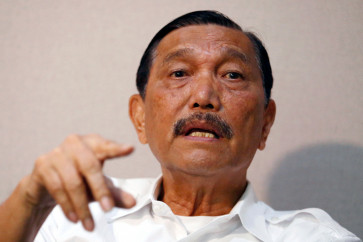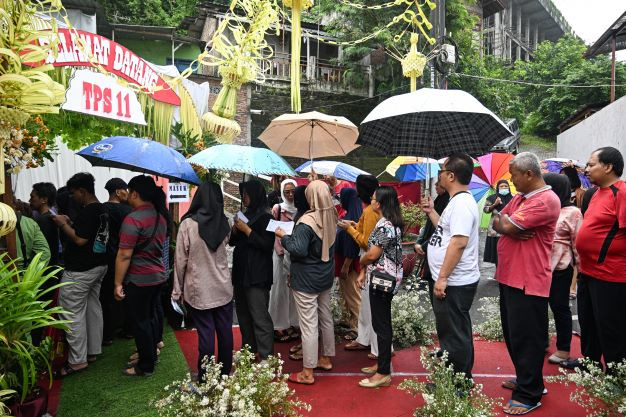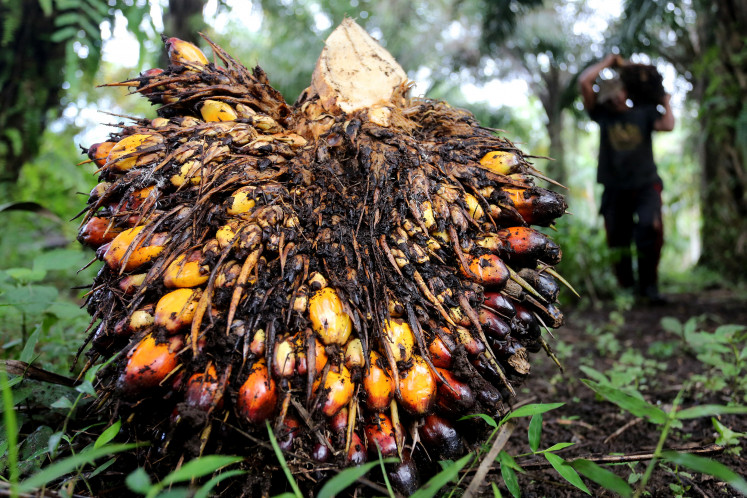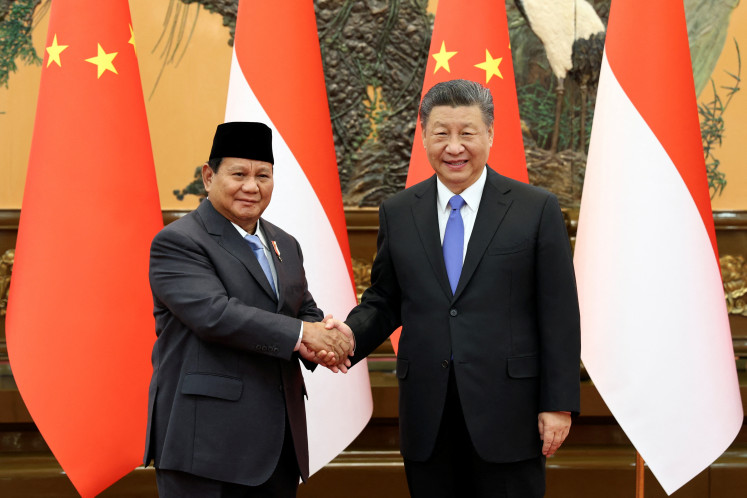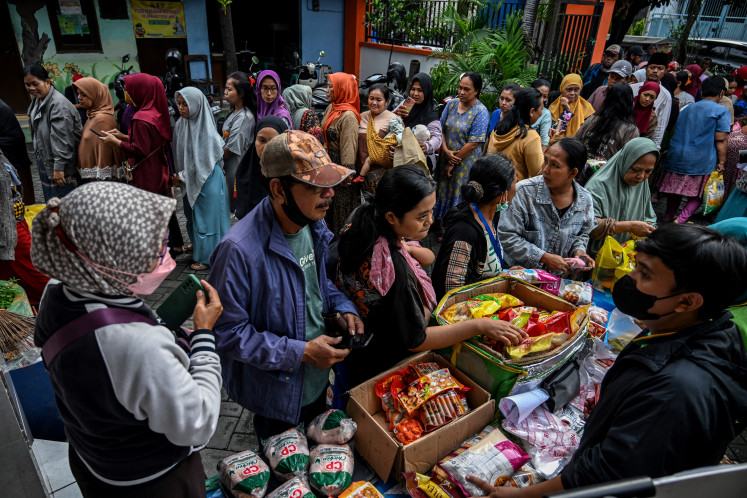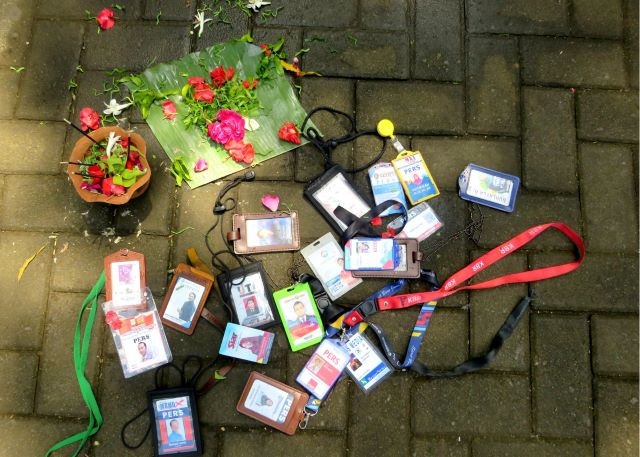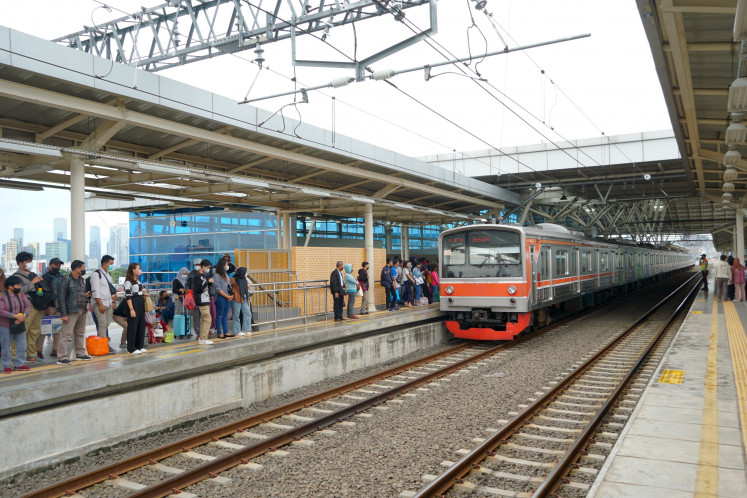Why low-skilled migration matters
Migration is now widely acknowledged as an issue that requires concerted coordination beyond the national level. As many studies confirm, if it is managed properly, migration can produce enormous potential for migrants and their families, region and beyond.
To be clear, this position applies not only to the so-called high-skilled but also, more importantly, to low-skilled migrants that have been viewed unfavorably in Southeast Asia, including, from the perspective of the sending countries such as Indonesia.
Change Size
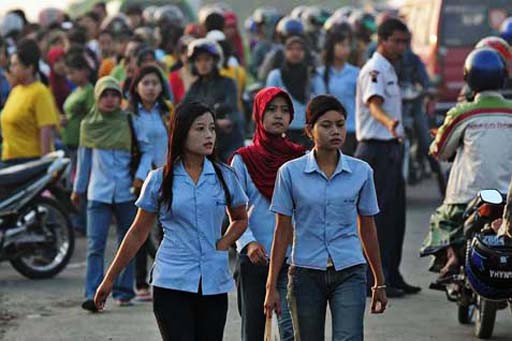 Female workers are seen leaving the plants on an afternoon in Jakarta, recently. The Manpower Ministry has received layoffs files in the first two months of 2016 which will affect 1,347 workers. (Antara/-)
Female workers are seen leaving the plants on an afternoon in Jakarta, recently. The Manpower Ministry has received layoffs files in the first two months of 2016 which will affect 1,347 workers. (Antara/-)
M
igration is now widely acknowledged as an issue that requires concerted coordination beyond the national level. As many studies confirm, if it is managed properly, migration can produce enormous potential for migrants and their families, region and beyond.
To be clear, this position applies not only to the so-called high-skilled but also, more importantly, to low-skilled migrants that have been viewed unfavorably in Southeast Asia, including, from the perspective of the sending countries such as Indonesia.
Seen from this point of view, migration is supposedly a “win-win solution” serving as a focal point for further integration rather than as division between sending and receiving countries.
Taking into account all the promising developments in the region toward “one vision, one identity and one community” that are taking place within ASEAN, it is surprising that the process has anachronistically been inimical to the subject of freedom of movement.
Specifically, the 2007 ASEAN Declaration on the Protection and Promotion of the Rights of Migrants has been widely regarded as “[falling] short of assuring equal opportunity and treatment”.
The current arrangement in regional integration tends to gravitate toward a mere free movement of goods, excluding persons.
On the other hand, this might also mean that the member states, whether they be sending or receiving countries, are, in one way or another, in a perpetual race to enhance a variety of punitive measures that aim to put a stop to all this “unwelcome” aspect of integration.
Truth be told, as Jagdish Bhagwati puts it, “[t]he reality is that borders are beyond control and little can be done to really cut down on immigration.”
As a result, under the current regional arrangement, the only “recognized” form of migration is for a limited number of high-skilled professionals.
Seemingly, ASEAN has acknowledged its potential for development, albeit in a very modest way, as agreed in the framework of the ASEAN Economic Community.
However, this cherry-picking model is not only, pragmatically speaking, misleading but ethically unacceptable for ASEAN as a project that strives to “promote [...] justice[,] the rule of law [...] and adherence to the principles of the United Nations Charter”.
It is simply unrealistic to expect the volume of this “unofficial” movement to subside, let alone to reach a halt.
Given the above situation, it makes sense to come out with a pragmatic approach in dealing with the issue.
Pragmatically, one has to recognize that the numbers of low-skilled migrants within the region accounts for more than two thirds of the movement.
In today’s societies, migrating for work is no longer dominated by the lucky few. It would raise eyebrows, therefore, for the region to neglect the interests of this population.
In fact, the integration of migration within the purview of ASEAN can be seen as part of its democratizing project.
In other words, the institutionalization of a true and genuine acceptance of the freedom of people’s movement signifies that ASEAN is in tune with an overwhelming number of its population’s demands.
By extension, this realistic turn might also imply that ASEAN is starting to send a strong signal to be informed by the region’s everyday problems and therefore makes itself more important.
Economically speaking, freedom of movement is potentially more rewarding than trade liberalization.
For example, a study by Lant Pritchett estimated that the benefits of freeing movement are much bigger than the trade liberalization and foreign aid combined. In fact, this claim has been included in the pantheon of economic orthodoxy.
Further, the option for closing borders is not only uneconomical but also morally untenable and it is recognized that the territorial boundaries that eventually define the physical identity of a modern state were (or could use are) decided arbitrarily.
Thus, as Joseph Carens argues, citizenship as a set of particular rights entitlement is no different from a “feudal privilege” that is “hard to justify when one thinks about it closely”.
It is natural that considering the philosophical basis of citizen’s privileges is rather weak; the universally agreed and applicable international standards on legal enforcement of immigration law require a strict distinction so it cannot be confused with the more stringent approach of regular criminal law.
To be specific, as far as international migration law is concerned, domestic enforcement is permissible to the extent that it is in the administrative remit.
After all, the experience shows that the effort to put a stop to migration is bound to fail.
More importantly, the claim for an open border has also somewhat been recognized in various ASEAN’s documents, such as the 2011 Ha Noi Declaration on the Adoption of the Master Plan on ASEAN Connectivity.
While it is true that we see an unprecedented regression in the area of freedom of movement in many states traditionally regarded as liberal, this by no means justifies the current approach that, to a certain extent, can be viewed as illegalizing the low-skilled migration.
Rather, the current “crisis” should be seen as an opportunity to correct the past mistakes that sustained the misleading caricature of the region as a conservatizing player in international affairs through the previous insistence on Asian values and other such arbitrary factors.
All in all, the introduction of the genuine freedom of movement is not foolhardy, especially in regional context. It has been implemented in other regions of the world — the EU, MERCOSUR (South American states), ECOWAS (West African states).
Instead, it should be seen as a pragmatic approach that eventually leads to further legitimization of ASEAN itself.
It is worth noting that migration of the low skilled is arguably the most important upcoming agenda for the region.
Naturally, the case for regulatory regime in the region is in line with the effort of making ASEAN as a people orientated project. The failure to do so is sending the wrong message to the people. Migration’s beneficial potential is there for the region to gain or lose.
Burying the reality of low-skilled migration under the carpet is both jeopardizing for the project of regionalism in the long run and morally deplorable at the same time.
Nevertheless, should ASEAN be serious with progressing to shift away from pure elitism, it makes sense now to start treating this population as one of the important facets of the regional project.
***
Pranoto Iskandar is founding director of the Institute for Migrant Rights, Cianjur, West Java, Indonesia.
Nicola Piper, a professor of international migration at the University of Sydney; is advisory board member of the Institute for Migrant Rights.
---------------
We are looking for information, opinions, and in-depth analysis from experts or scholars in a variety of fields. We choose articles based on facts or opinions about general news, as well as quality analysis and commentary about Indonesia or international events. Send your piece to community@jakpost.com. For more information click here.


